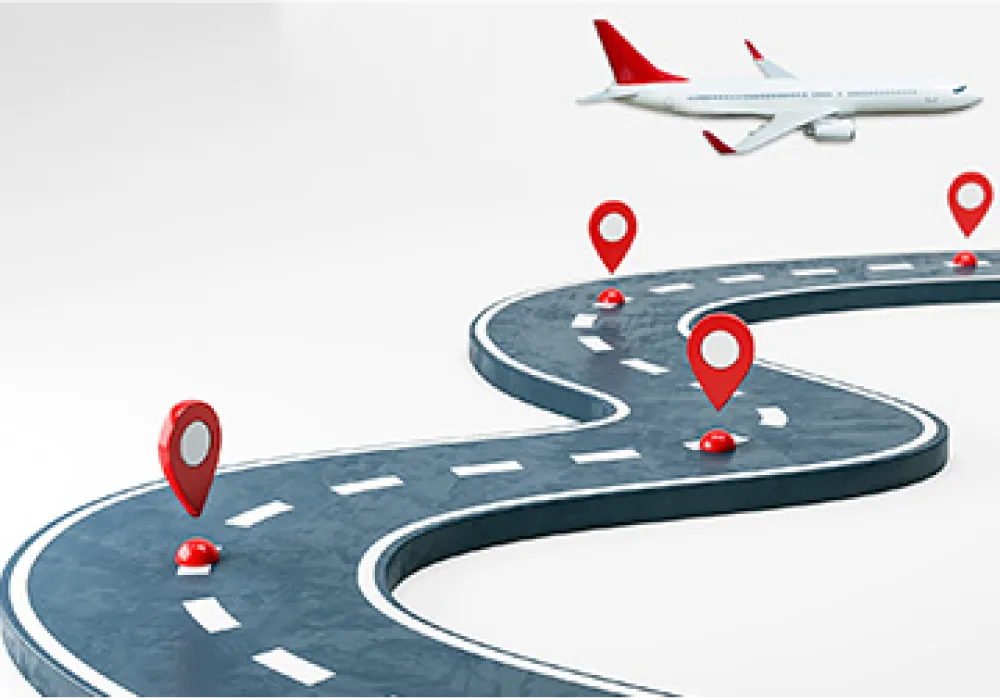If you dream to soar through the skies, being a pilot is one of the best things you can do. Today, I’ll be sharing the only guide you’ll ever need to become a pilot.
We’ll start the journey right after the end of your Higher Senior Secondary or Class 12th.
Class 2 Medical Examination
Before beginning your pilot journey, you'll undergo a Class 2 medical examination by a DGCA-approved medical examiner to ensure you're physically and mentally fit.
This exam checks vision, hearing, cardiovascular health, and overall physical fitness, certifying that you meet the health standards to safely operate an aircraft.
Ground School: Studying the Core Subjects
Once you have your medical clearance, it's time to dive into ground school, where you'll study five core subjects essential for your aviation knowledge:
- Air Navigation
- Air Meteorology
- Air Regulations
- Technical General
- RTR (Radio Telephony)
You need to pass exams in all five subjects before you can move on to flight training. The good news is that you don’t have to take all the exams at once.
Ab Initio Flight Training
After passing your ground school exams, you'll obtain your Student Pilot License (SPL) within 4-6 days, learning basic flight principles under an instructor's supervision.
With the SPL, you'll begin training for your Private Pilot License (PPL), mastering essential flying skills, including solo flights. You'll also need a Class 1 medical examination, ensuring you're fit for advanced training.
Ab Initio training involves advanced maneuvers, night flying, and multi-engine operations, laying a solid foundation for your Commercial Pilot License (CPL) over approximately two years.
Advanced Flight Training and CPL Certification
With your PPL, you move to advanced flight training, working towards your CPL.
This phase involves mastering complex flying skills, accumulating around 200 flight hours, and passing the CPL exams, which test advanced aerodynamics, air regulations, and aircraft systems.
Earning your CPL allows you to work as a commercial pilot.
Type Rating: Specializing in a Specific Aircraft
After earning your CPL, the next step is Type Rating, a specialized training program focused on a particular aircraft model.
For example, if you choose the Airbus A320, you’ll undergo intensive training specifically for that aircraft. This training includes simulator sessions and theoretical studies about the aircraft's systems and operations.
Type Rating is essential because it certifies you to operate that specific type of aircraft. The duration of Type Rating typically ranges from 2-3 months.
Once completed, you’ll be qualified to fly the aircraft you’ve trained for. If you wish to switch to a different aircraft model in the future, you’ll need to undergo another Type Rating for that specific model.
|
For more information or personalized guidance join our WhatsApp channel and get real-time support from our experts. |
Some Important Points
Mathematics and Physics Requirement
The reason you need Math and Physics at the 10+2 level is that two of the most critical subjects in pilot training, Air Navigation and Technical General, rely heavily on these disciplines. Air Navigation requires an understanding of the mathematics of flight, while Technical General involves the Physics of Aircraft.
Age and Medical Fitness
The age limit to become a pilot can vary depending on the airline, but what’s more crucial is being medically fit. This is why the Class 2 and Class 1 medical tests are essential, as they ensure you meet the physical and mental health standards required to safely operate an aircraft.
Type Rating Preference
While it’s not mandatory to sit for a Type Rating course, most airlines prefer that you have one. Type Rating certifies you to operate a specific aircraft model, which makes you a more attractive candidate to airlines.
CPL Exam Structure
The CPL exam includes both a Viva and a flight test, typically taking about 2 hours to complete. The test is conducted in two parts: a skill test by day and a skill test by night, assessing both your IFR (Instrument Flight Rules) and VFR (Visual Flight Rules) capabilities.

